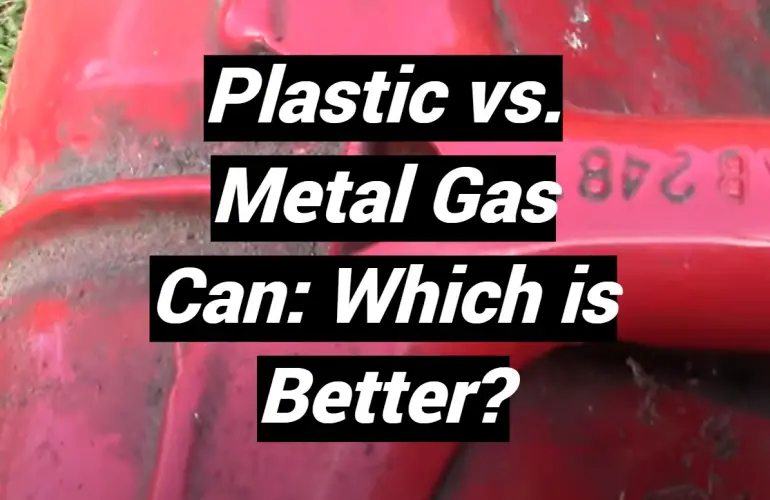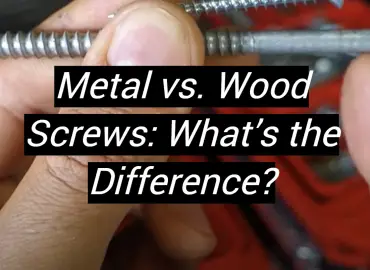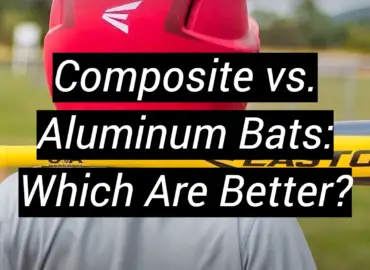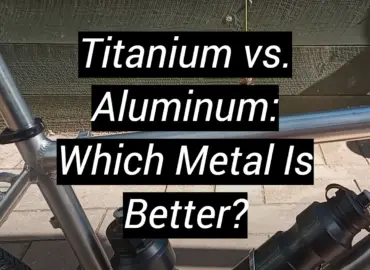When it comes to gas cans, there are two main materials that they can be made out of: plastic and metal. Both have their own benefits and drawbacks, so it can be difficult to decide which is the best option for you. We know that researching before making a purchase is vital, so we’ve compared plastic and metal gas cans to help you decide which option better fits your needs.
What Is A Gas Can?
First and foremost, it’s important to understand exactly what a gas can is.
There are two primary materials that gas cans are made from: metal and plastic. Traditionally, gas cans were crafted from metal. Though metal gas cans are still commonly found, plastic gas cans have been growing in popularity.
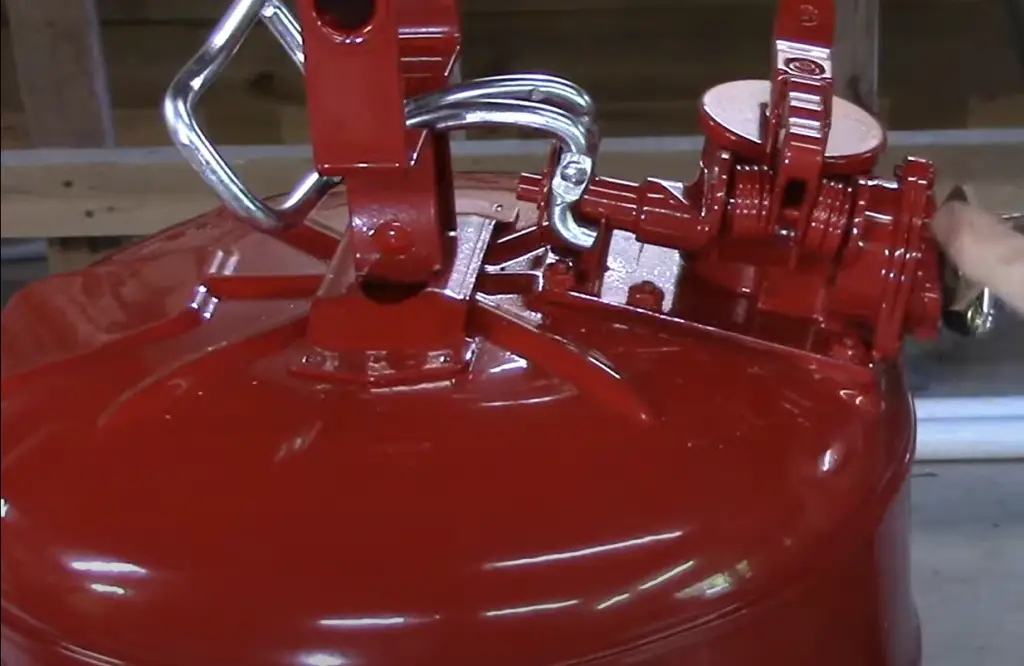
So, which type of gas can is better? By examining the advantages and disadvantages of each type, we can come to a conclusion. [1]
Plastic vs. Metal Gas Can
Burning Vs Exploding
The most important consideration when choosing a gas can is safety. Gasoline is a very flammable liquid, and as such, needs to be handled with care.
One of the biggest differences between metal and plastic gas cans is the way they respond to fire. If a metal gas can is exposed to flames, it will quickly heat up and eventually explode. This can obviously be very dangerous.
On the other hand, plastic gas cans are much less likely to explode when exposed to fire. This is because plastic has a lower melting point than metal.
So, if a plastic gas can is exposed to flames, it will simply start to melt and deform instead of exploding. This doesn’t mean that plastic gas cans are completely safe, but they are definitely safer than metal gas cans.
Weight
Another important consideration is weight. Metal gas cans are typically heavier than plastic gas cans. This is because metal is a denser material than plastic. The weight difference may not seem like much, but it can be significant if you need to carry a gas can for any distance. For example, if you’re going camping and need to bring a gas can with you, a plastic gas can will be much easier to carry than a metal one. [2]
Cost
Another factor to consider is cost. In general, metal gas cans are more expensive than plastic ones. This is because metal is a more expensive material than plastic.
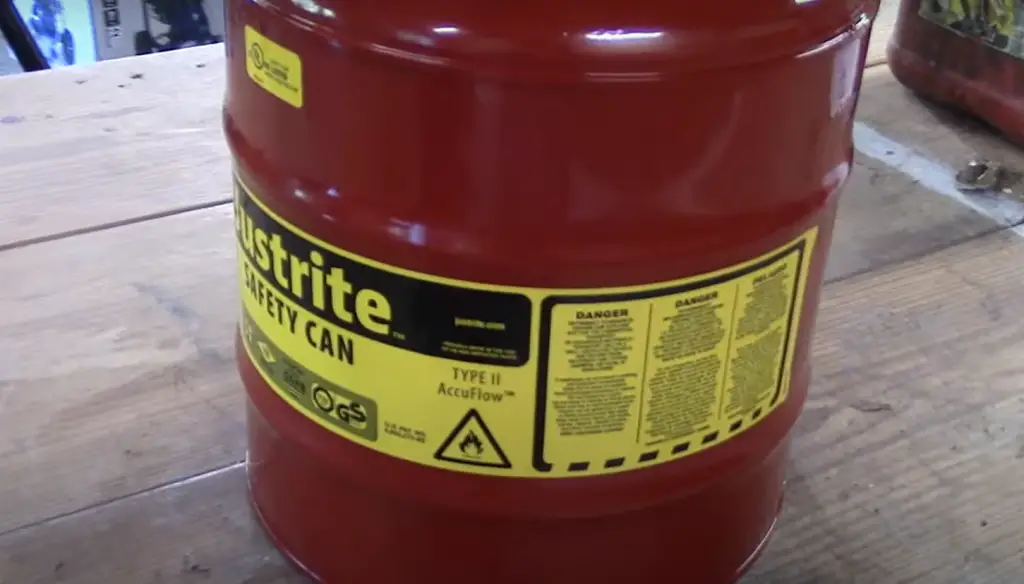
So, if you’re looking for the most economical option, a plastic gas can is probably the way to go. But if you’re willing to spend a bit more money, a metal gas can may be a better choice.
Durability
Finally, it’s important to consider durability when choosing a gas can. Metal gas cans are typically more durable than plastic ones. This is because metal is a stronger material than plastic. So, if you need a gas can that will withstand rough treatment, a metal one is probably the way to go. But if you don’t need such a rugged gas can, a plastic one should be just fine.
Will You Be Keeping The Can In Your Car?
One more thing to consider is whether or not you’ll be keeping the gas can in your car. If you plan on doing this, a plastic gas can is probably the better choice. This is because plastic gas cans are less likely to leak than metal ones. Gasoline is a very smelly liquid, and if there’s a small leak in a metal gas can, the whole inside of your car will start to smell like gasoline. So, if you plan on keeping the gas can in your car, a plastic one is probably the way to go. If you’re comfortable with the potential of leaks, a metal gas can may be a better option.
Do You Need To Take The Container Abroad?
If you need to take the gas can abroad with you, a plastic one is probably the way to go. This is because metal gas cans are not allowed on airplanes. So, if you plan on flying with your gas can, a plastic one is definitely the way to go.
What Is The Capacity Of The Tank You Will Be Filling?
Metal gas cans are available in a wide range of sizes, from small 1-gallon cans to large 5-gallon cans. Plastic gas cans are also available in a wide range of sizes. But if you need a very large gas can, a metal one is probably the way to go.
So, if you need a very large gas can, a metal one is probably the better choice. [3]What Will You Be Using The Can For?
Finally, it’s important to consider what you’ll be using the gas can for. If you only need a small amount of gas for your lawn mower, a plastic gas can may be the better choice. But if you need a large amount of gas for your car, a metal gas can is probably the way to go.
Which Is Safer?
The two main types of gas cans are made of either metal or plastic. Both have their pros and cons, but which one is the safest to use?
Metal gas cans are often made of aluminum or steel. They are usually thicker and more durable than plastic gas cans. This makes them less likely to leak or rupture if they are dropped or hit.
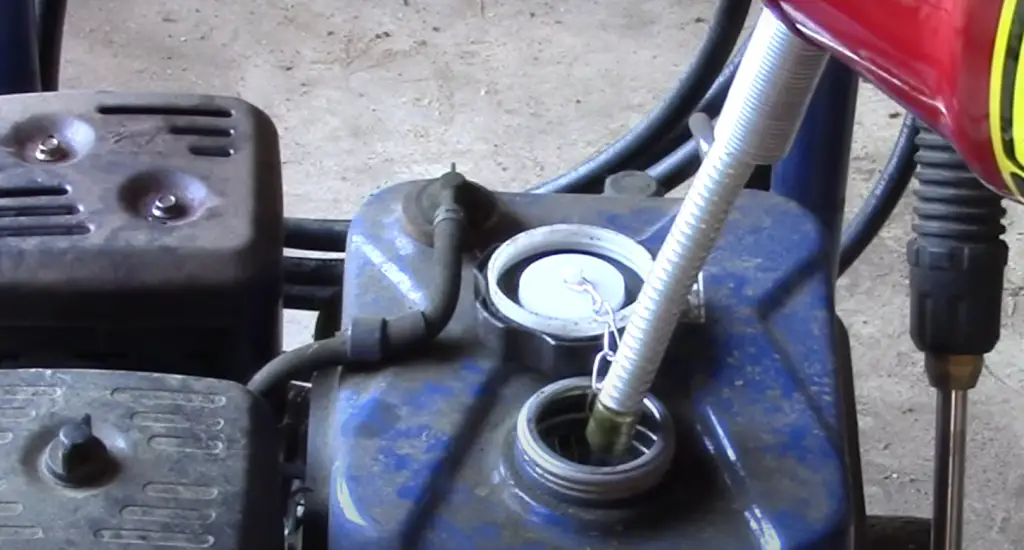
However, metal gas cans can rust over time. This can cause the gas to spoil and become unsafe to use. Additionally, metal gas cans can conduct electricity. This means that if they come into contact with power lines, they could cause a fire or explosion.
Plastic gas cans are usually made of high-density polyethylene (HDPE). They are often thinner and lighter than metal gas cans. This makes them easier to carry and pour. [4]
Plastic gas cans are also less likely to rust. However, they can be damaged by excessive heat or cold. Additionally, some plastic gas cans may absorb the fumes from the gasoline, which can make them unsafe to use.
So, which is the safer option? Metal or plastic?
The answer may depend on how you plan to use your gas can. If you are concerned about fire safety, then a metal gas can may be the best option. However, if you are worried about the gas spoiling or being absorbed by the container, then a plastic gas can may be a better choice. Ultimately, it is up to you to decide which type of gas can is best for your needs.
Tips on Storing Gas Cans Properly
No matter which type of gas you choose, it is important to store it properly. Gasoline is a flammable substance, so you should always keep your gas can away from heat or open flames.
Additionally, you should always store your gas can in a cool, dry place. If the temperature gets too hot, the gas could expand and cause the can to leak or rupture. Likewise, if the temperature gets too cold, the gas could contract and become difficult to pour.
This will help prevent accidental spills or leaks.Finally, you should always inspect your gas can before using it. Look for any signs of damage, such as cracks, holes, or rust. If you find any damage, do not use the gas can and replace it with a new one.
By following these tips, you can help ensure that your gas can is safe to use.
How to Choose a Gas Can?
When choosing a gas can, there are several factors to consider. First, think about the capacity you need. Gas cans come in a variety of sizes, from 1 gallon to 5 gallons. Choose a size that is appropriate for your needs. [5]
Next, consider the type of material you want. As discussed above, gas cans are made of either metal or plastic. Each has its own advantages and disadvantages. Consider which type would be best for your needs.
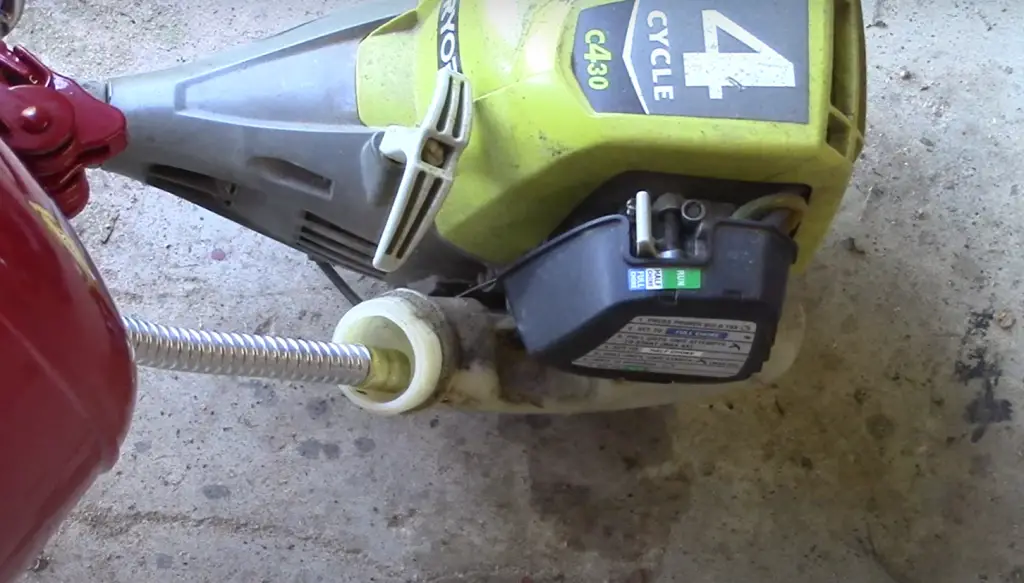
Finally, think about the features you want. Gas cans come with a variety of features, such as spouts, screens, and vents. Some gas cans even come with built-in shut-off valves. Choose the features that are most important to you.
Are All Gas Cans the Same?
No, all gas cans are not the same. There are a variety of factors to consider when choosing a gas can, such as the capacity, material, and features. Consider your needs and choose the gas can that is best for you.
FAQ
Which gas cans are best?
This is a question that has been hotly debated for years. Some people swear by metal gas cans, while others prefer plastic. There are pros and cons to both types of gas cans, so it really comes down to personal preference. Metal gas cans are typically made of aluminum or steel. They are durable and won’t crack or break like plastic gas cans can. Metal gas cans also don’t absorb fuel like plastic ones do, so there is less risk of contamination. However, metal gas cans are heavier than plastic ones and can rust over time if not properly maintained. Plastic gas cans are usually made of high-density polyethylene (HDPE). They are lighter than metal gas cans and won’t rust, but they are not as durable and can crack or break if dropped. Plastic gas cans also absorb fuel, so there is a risk of contamination if they are not cleaned properly. Ultimately, it comes down to personal preference. Some people prefer the durability of metal gas cans, while others find the lighter weight and rust-proof properties of plastic gas cans to be more advantageous.
What are the benefits of using a gas can?
Gas cans are beneficial because they allow you to store extra fuel for your vehicle. This is especially useful if you frequently travel long distances or go off-roading where there may not be any gas stations nearby. Gas cans also help you to be prepared in case of an emergency situation where you might need to evacuate or if your vehicle breaks down and you need to get it towed.
What are the risks of using a gas can?
There are some risks associated with using gas cans, but they can be minimized by taking proper safety precautions. One of the biggest dangers of using gas cans is that they can explode if they are not used properly. This can happen if the gas can is left in direct sunlight or if it is not vented properly when filling it up. Gas cans should also be stored in a cool, dry place away from any heat sources. Another risk to consider is that gas cans can leak, so it is important to check them regularly for any signs of leakage. Finally, always make sure the cap on your gas can is tight before moving it to avoid spillage.
Are plastic gas cans safe?
Plastic gas cans are generally considered to be safe if they are used properly. However, there have been some reports of plastic gas cans exploding, so it is important to take proper safety precautions when using them.
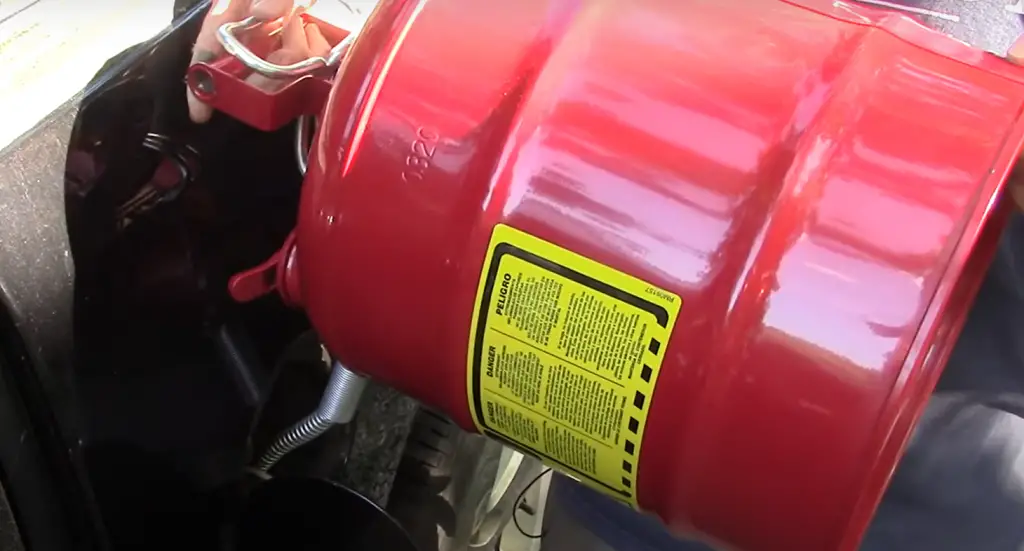
One way to help avoid this is to store the gas can in a cool, dry place away from any heat sources. Additionally, always make sure the cap on your gas can is tight before moving it to avoid spillage.
How often should I check my gas can?
You should check your gas can regularly for any signs of leakage or rust. Additionally, it is important to clean the gas can if it becomes dirty. If you notice any damage to the gas can, such as cracks or holes, you should replace it immediately.
How long do plastic gas cans last?
Plastic gas cans typically last for several years if they are properly cared for. However, they can start to degrade over time if they are exposed to sunlight or other heat sources. Additionally, plastic gas cans can crack or break if they are dropped.
What is the best type of jerry can?
There is no definitive answer to this question as it depends on personal preference. Some people prefer metal gas cans because they are more durable, while others find the lighter weight and rust-proof properties of plastic gas cans to be more advantageous. Ultimately, it comes down to what you value most in a jerry can.
What is the difference between a jerry can and a gas can?
A jerry can is a type of container that is used to hold fuel. Gas cans are typically used to store extra fuel for vehicles. Jerry cans are often made of metal or plastic, while gas cans can be made of either material. Metal gas cans are more durable but heavier, while plastic gas cans are lighter but not as tough. Ultimately, it comes down to personal preference.
How long do metal gas cans last?
Metal gas cans are generally more durable than plastic models, so they tend to last longer. However, there are a few things that can shorten the lifespan of a metal gas can, such as rust and corrosion. If you take good care of your metal gas can and keep it clean and dry, it should last for many years.
What are the disadvantages of metal gas cans?
While metal gas cans have several advantages over plastic models, there are a few disadvantages to consider as well. One is that metal gas cans are often heavier than plastic ones, which can make them difficult to carry. Additionally, some metals may react with the chemicals in gasoline, causing contamination. Finally, metal gas cans can rust and corrode over time, which can lead to leaks.
Useful Video: Plastic Vs Steel Fuel Tank – What’s Best? | Auto Expert John Cadogan
Conclusion
So, which is the better option for a gas can? Plastic or metal? The answer may not be as simple as you think. Each option has its own pros and cons that you’ll need to consider before making a decision.
If you’re looking for a gas can that’s lightweight and easy to carry, then plastic is the way to go. However, if you need a more durable option that won’t break or dent easily, then metal is your best bet. Ultimately, the choice comes down to personal preference and what your specific needs are.
References:
- https://www.motor1.com/products-services/auto-products/gas-can/
- https://theprepared.com/gear/reviews/gas-can/
- https://www.amazon.com/Eagle-UI-50-FSY-Galvanized-Capacity-Diameter/dp/B000MX0EII
- http://jplast.co.za/2018/09/21/the-hdpe-high-density-polyethylene-jerry-can-with-or-without-tap/
- https://www.amazon.com/Gallon-Can-Spill-Proof-Container/dp/B00SLPYJX0

